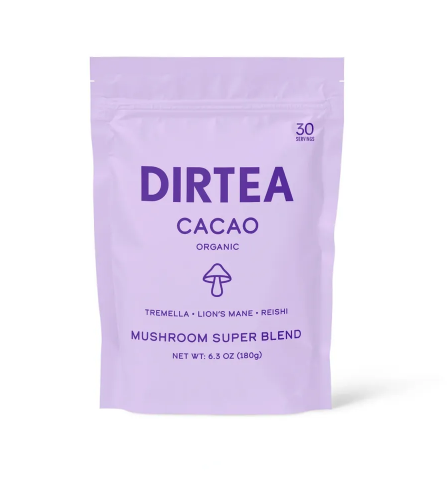
Does CBD Make You Sleepy?
Introduction:
CBD, short for cannabidiol, has gained significant attention in recent years for its potential therapeutic benefits. Many people use CBD to promote relaxation and relieve various symptoms. One common question that arises is whether CBD can make you sleepy. In this comprehensive guide, we will delve into the effects of CBD on sleep and explore the scientific evidence behind its potential sleep-inducing properties.
Understanding CBD:
Cannabidiol is a non-intoxicating compound derived from the cannabis plant. Unlike its counterpart, tetrahydrocannabinol (THC), CBD does not produce a “high” sensation. CBD interacts with the endocannabinoid system (ECS) in the body, which plays a crucial role in regulating various physiological processes, including sleep.
CBD and Sleep:
The Relationship between CBD and Sleep Regulation:
- Research suggests that CBD may influence sleep-wake cycles by interacting with receptors in the ECS. The ECS helps maintain homeostasis in the body, including sleep regulation.
- CBD has been found to interact with serotonin receptors, which are involved in mood and sleep regulation. This interaction may promote relaxation and potentially improve sleep quality.
CBD and Insomnia:
- Insomnia is a common sleep disorder characterized by difficulty falling asleep, staying asleep, or experiencing non-restorative sleep.
- Some studies suggest that CBD may help alleviate insomnia symptoms. CBD’s potential calming effects could aid in reducing anxiety, which is often associated with sleep disturbances.
- However, further research is needed to fully understand the long-term effects and optimal dosage for addressing insomnia.
CBD and Sleep Disorders:
- CBD may offer potential benefits for specific sleep disorders, such as sleep apnea, restless leg syndrome (RLS), and REM sleep behavior disorder (RBD).
- Preliminary studies indicate that CBD might help manage the symptoms associated with these conditions, including reducing RBD-related muscle spasms and improving sleep quality.
CBD and Daytime Alertness:
While CBD may have sleep-inducing effects for some individuals, it does not necessarily cause drowsiness or impair daytime alertness.
Research suggests that CBD might promote a balance between sleep and wakefulness by addressing underlying factors that contribute to sleep disturbances.
Factors Affecting CBD’s Effects on Sleep:
Dosage:
- The optimal CBD dosage for sleep varies depending on individual factors, such as body weight, metabolism, and the severity of sleep disturbances.
- It is recommended to start with a low dosage and gradually increase it until the desired effects are achieved. Consulting with a healthcare professional is advisable.
Timing of Administration:
- The timing of CBD consumption can influence its effects on sleep. Some individuals may find it beneficial to take CBD before bedtime, while others may prefer taking it earlier in the day to address anxiety and stress that impact sleep.
CBD Product Variations:
- CBD products come in various forms, including oils, capsules, edibles, and topicals. Each product may have a different onset and duration of effects.
- Factors such as bioavailability (how well CBD is absorbed by the body) and product quality may also influence the effectiveness of CBD for sleep.
Conclusion:
While CBD shows promise as a potential aid for sleep, it is important to recognize that individual responses may vary. CBD’s effects on sleep are influenced by multiple factors, including dosage, timing, and the underlying causes of sleep disturbances. It is advisable to consult with a healthcare professional before using CBD for sleep-related issues, especially if you have pre-existing medical conditions or are taking other medications.
Further research is necessary to better understand the mechanisms through which CBD influences sleep and to establish standardized guidelines for its use. As the field
of CBD research continues to evolve, it is essential to stay informed about the latest findings and consult reliable sources.
It’s worth noting that CBD should not be considered a substitute for professional medical advice or treatment. If you are experiencing chronic sleep problems or have a diagnosed sleep disorder, it is crucial to consult with a healthcare professional who can provide tailored guidance and recommendations based on your specific situation.
In summary, while CBD may have sleep-inducing properties for some individuals, its effects on sleep are complex and can vary. Research suggests that CBD may help promote relaxation, alleviate anxiety, and potentially improve sleep quality. However, further studies are needed to fully understand the mechanisms and optimal dosages for different sleep conditions.
When considering using CBD for sleep, it is essential to source high-quality products from reputable manufacturers. Additionally, it’s important to start with a low dosage and gradually increase it as needed while monitoring its effects on your sleep patterns.
Remember, everyone’s response to CBD is unique, and what works for one person may not work the same for another. It’s always advisable to seek guidance from healthcare professionals who can provide personalized advice based on your specific circumstances.
As the field of CBD research progresses, we can expect to gain more comprehensive knowledge about CBD’s effects on sleep and its potential role in managing sleep-related issues.
- CBD Vape Juice By Glowbar London-Vape Your Way to Bliss: My CBD Adventure with Glowbar London’s Vape Juice - March 28, 2024
- Top Effects of Sleep Deprivation on Your Body - May 27, 2023
- Does CBD Make You Sleepy? - May 27, 2023


